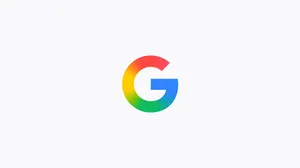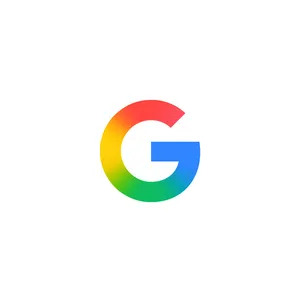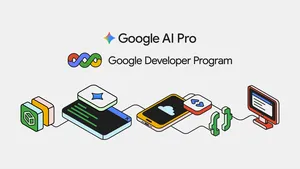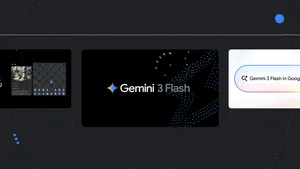Cloud AutoML: Making AI accessible to every business

When we both joined Google Cloud just over a year ago, we embarked on a mission to democratize AI. Our goal was to lower the barrier of entry and make AI available to the largest possible community of developers, researchers and businesses.
Our Google Cloud AI team has been making good progress towards this goal. In 2017, we introduced Google Cloud Machine Learning Engine, to help developers with machine learning expertise easily build ML models that work on any type of data, of any size. We showed how modern machine learning services, i.e., APIs—including Vision, Speech, NLP, Translation and Dialogflow—could be built upon pre-trained models to bring unmatched scale and speed to business applications. Kaggle, our community of data scientists and ML researchers, has grown to more than one million members. And today, more than 10,000 businesses are using Google Cloud AI services, including companies like Box, Rolls Royce Marine, Kewpie and Ocado.
But there’s much more we can do. Currently, only a handful of businesses in the world have access to the talent and budgets needed to fully appreciate the advancements of ML and AI. There’s a very limited number of people that can create advanced machine learning models. And if you’re one of the companies that has access to ML/AI engineers, you still have to manage the time-intensive and complicated process of building your own custom ML model. While Google has offered pre-trained machine learning models via APIs that perform specific tasks, there's still a long road ahead if we want to bring AI to everyone.
To close this gap, and to make AI accessible to every business, we’re introducing Cloud AutoML. Cloud AutoML helps businesses with limited ML expertise start building their own high-quality custom models by using advanced techniques like learning2learn and transfer learning from Google. We believe Cloud AutoML will make AI experts even more productive, advance new fields in AI and help less-skilled engineers build powerful AI systems they previously only dreamed of.
Our first Cloud AutoML release will be Cloud AutoML Vision, a service that makes it faster and easier to create custom ML models for image recognition. Its drag-and-drop interface lets you easily upload images, train and manage models, and then deploy those trained models directly on Google Cloud. Early results using Cloud AutoML Vision to classify popular public datasets like ImageNet and CIFAR have shown more accurate results with fewer misclassifications than generic ML APIs.
Here’s a little more on what Cloud AutoML Vision has to offer:
Increased accuracy: Cloud AutoML Vision is built on Google’s leading image recognition approaches, including transfer learning and neural architecture search technologies. This means you’ll get a more accurate model even if your business has limited machine learning expertise.
Faster turnaround time to production-ready models: With Cloud AutoML, you can create a simple model in minutes to pilot your AI-enabled application, or build out a full, production-ready model in as little as a day.
Easy to use: AutoML Vision provides a simple graphical user interface that lets you specify data, then turns that data into a high quality model customized for your specific needs.
“Urban Outfitters is constantly looking for new ways to enhance our customers’ shopping experience," says Alan Rosenwinkel, Data Scientist at URBN. "Creating and maintaining a comprehensive set of product attributes is critical to providing our customers relevant product recommendations, accurate search results and helpful product filters; however, manually creating product attributes is arduous and time-consuming. To address this, our team has been evaluating Cloud AutoML to automate the product attribution process by recognizing nuanced product characteristics like patterns and neckline styles. Cloud AutoML has great promise to help our customers with better discovery, recommendation and search experiences."
Mike White, CTO and SVP, for Disney Consumer Products and Interactive Media, says: “Cloud AutoML’s technology is helping us build vision models to annotate our products with Disney characters, product categories and colors. These annotations are being integrated into our search engine to enhance the impact on Guest experience through more relevant search results, expedited discovery and product recommendations on shopDisney.”
And Sophie Maxwell, Conservation Technology Lead at the Zoological Society of London, tells us: "ZSL is an international conservation charity devoted to the worldwide conservation of animals and their habitats. A key requirement to deliver on this mission is to track wildlife populations to learn more about their distribution and better understand the impact humans are having on these species. In order to achieve this, ZSL has deployed a series of camera traps in the wild that take pictures of passing animals when triggered by heat or motion. The millions of images captured by these devices are then manually analysed and annotated with the relevant species, such as elephants, lions and giraffes, etc., which is a labour-intensive and expensive process. ZSL’s dedicated Conservation Technology Unit has been collaborating closely with Google’s Cloud ML team to help shape the development of this exciting technology, which ZSL aims to use to automate the tagging of these images—cutting costs, enabling wider-scale deployments and gaining a deeper understanding of how to conserve the world’s wildlife effectively."
If you’re interested in trying out AutoML Vision, you can request access via this form.
AutoML Vision is the result of our close collaboration with Google Brain and other Google AI teams, and is the first of several Cloud AutoML products in development. While we’re still at the beginning of our journey to make AI more accessible, we’ve been deeply inspired by what our 10,000+ customers using Cloud AI products have been able to achieve. We hope the release of Cloud AutoML will help even more businesses discover what’s possible through AI.
References
Learning Transferable Architectures for Scalable Image Recognition, Barret Zoph, Vijay Vasudevan, Jonathon Shlens, Quoc V. Le. Arxiv, 2017.
Progressive Neural Architecture Search, Chenxi Liu, Barret Zoph, Jonathon Shlens, Wei Hua, Li-Jia Li, Li Fei-Fei, Alan Yuille, Jonathan Huang, Kevin Murphy, Arxiv, 2017.
Large-Scale Evolution of Image Classifiers, Esteban Real, Sherry Moore, Andrew Selle, Saurabh Saxena, Yutaka Leon Suematsu, Quoc Le, Alex Kurakin. International Conference on Machine Learning, 2017.
Neural Architecture Search with Reinforcement Learning, Barret Zoph, Quoc V. Le. International Conference on Learning Representations, 2017.
Inception-v4, Inception-ResNet and the Impact of Residual Connections on Learning, Christian Szegedy, Sergey Ioffe, Vincent Vanhoucke, Alex Alemi. AAAI, 2017.
Bayesian Optimization for a Better Dessert, Benjamin Solnik, Daniel Golovin, Greg Kochanski, John Elliot Karro, Subhodeep Moitra, D. Sculley. NIPS, Workshop on Bayesian Optimization, 2017.








